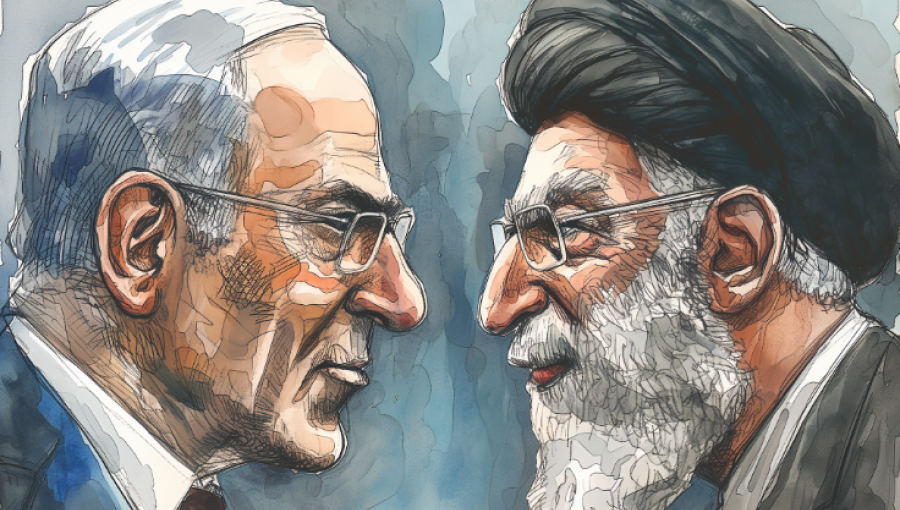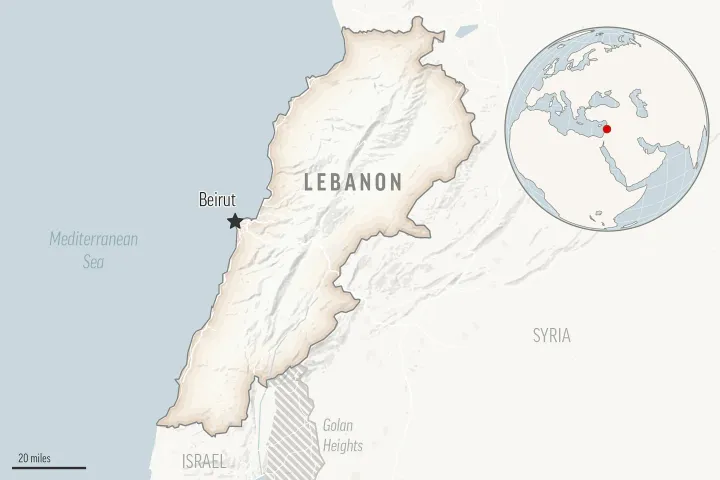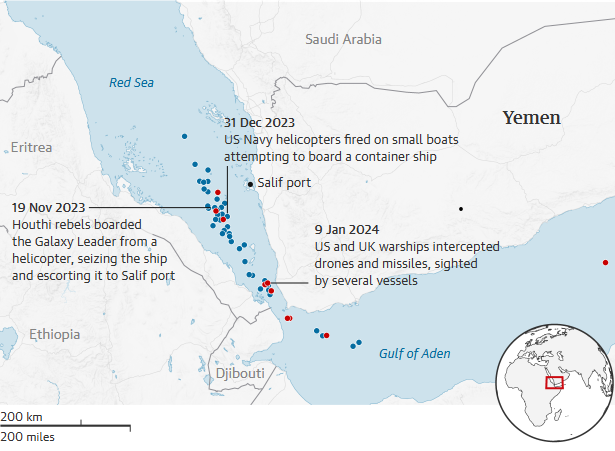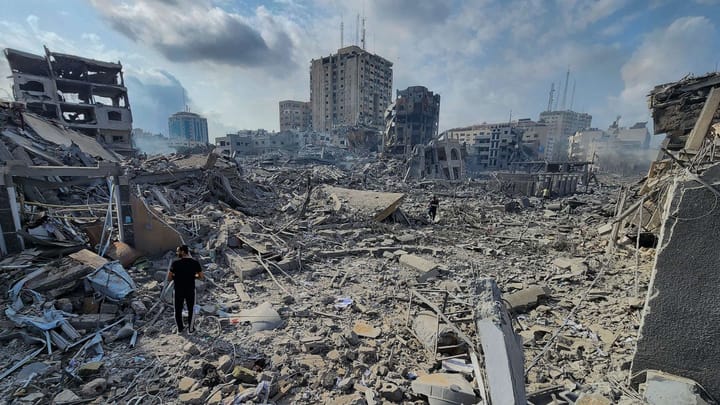The Root of Iran’s Destabilizing Strategy in the Middle East & Why an Iran-Israel War is Closer than Ever

“Israel is a disgraceful blot... [it should be] wiped off the face of the earth."
-Mahmoud Ahmadinejad, 2005.
“Israel's annihilation is the only real cure, but that doesn't mean destroying Jews in this region."
-Ayatollah Khamenei, July 2014
Iran's destabilizing acts in the Middle East and North Africa have cost over 1 million lives – many of them are Muslims[1]. Each of these wars involves Iran arming one side against the other and militarily drawing in Russia, who have a strong presence in Syria.[2]. The world’s only Jewish state has faced direct threats and ballistic missile attacks from Iran. Israel has been firm in confronting Iran. Israel has made it clear that they will not entertain Iran’s export of violence and terror in their territory. The purpose of this article is to critically analyze the root of Iran’s destabilizing acts in the Middle East and why Israel has risen up against the regime so firmly.
The Central Issue
The fundamental basis of Iran's wars that have led to the slaughter of over a million Muslims is driven by their desire to defend their own brand of Islam – Shiism. Iran is at the forefront of the age-old Islamic schism, which puts the Shiites at odds with Sunni Islam, which represents the overwhelming majority of Muslims. Iran, as a leading Muslim state in the current global order, behaves as if they are the patron of minority Islam sects who do not agree with the mainstream Sunni Islamic doctrine. This is the reason Iran supports regimes and militia groups that stand against the Sunni majority.
Iran Regime’s Fundamental Endgame
In meeting their goals, Iran seeks to use a distinct form of populism that rallies groups in Islamic nations – many of them historically marginalized. Iran does this mobilization through the three classical ideas used by virtually every terrorist organization in the region, including Al-Qaeda:
1. Islam is politically at war with Jews and Christians,
2. There are lands historically conquered by Islamic religious fighters, and those lands should remain under Islamic groups,
3. Political Islam should be practiced under the supervision of a religious body endorsed by Iran and their proxies,
4. Governments of states in land considered Islamic lands should not entertain ‘foreign presence’ on these lands,
5. The presence of American military bases in the Middle East is anti-Islam, and governments who host them are illegitimate,
6. Israel is an illegal creation because it is occupying an "Islamic land," as identified in (2) above.
All of the first five elements are negotiable or can be fought over [even if countless Muslims will die from it, as the case is now]. This is the essence of Iran’s regime’s current policy of exporting its revolution and ideology through military and social justice programs[3]. However, to Iran, the sixth element of destroying Israel is not negotiable[4]. This is something the current Iranian regime has been demanding since they took power in 1979.
Iran’s Regime’s Self-Preservation & The Islamic Cold War
In the quest to pursue their goals and agenda, Iran has compromised on their puritan position on keeping Iran free of any foreign influence. In fact, Iran is so set in its ways that they have moved East and embraced Russia and China in ways that have fueled the wars that have claimed the lives of over a million Muslims. Indeed, the original position of Iran after the Revolution was “neither East nor West."[5].
Iran has led the cultivation of strong relations with Russia and China. This intensified during the Syrian Civil War in 2011 when they stood behind the Asaad regime. This is a government that cultivated longstanding relationships with the Russians from the Soviet era. Senior Syrian military officers have been trained in Russia for decades.
The post-2011 revolutions of the Middle East pitched Saudi Arabia against Iran. Both sides accused each other of trying to overthrow their governments. In the ensuing quest for self-preservation, the two leading powers of the Middle East enlisted foreign support from their opposing camps and supporters on the UN Security Council.
However, the ultimate calculus Iran and Saudi Arabia adopted was to fund and support wars in the region to ensure none of them was completely encircled by the other. Thus, an arms race ensued that intensified the war in Syria, which spilled over to Iraq. A new front opened in Yemen, where both parties contributed significantly.
Changing Positions on Israel
The Saudis and Sunni states adopted a policy of pursuing peaceful coexistence in the region. In the 2020s, many concepts of land ownership and sovereign control over land are replaced by the concept of property value. As such, Israel’s existence in the Middle East is more of a congregation of all Jews who have lived in the region for centuries. Thus, Saudi Arabia took a more practical stand on Israel.
Iran, on the other hand, increased its aggression against Israel. This is the root of the current problem and challenge that brings Israel and Iran closer to war.
Iran’s Hardline Position on Israel
Iran has seen Israel as an illegal foreign creation that must be destroyed at all costs. This has been their official position from the onset of the Revolution in 1979. It has not been softened, although Iran has changed its views on its relations with Russia and China – two non-Islamic countries.
Utilization of Israel as a Populist Mobilizing Force for Iran
For eight decades, Israel has been the uniting force for Islamic countries around the world. Israel is the common enemy. And any leader who lacks a clear agenda can always garner some support in the Islamic world by invoking an anti-Israel message.
Iran has maintained a simple anti-Israel message that mobilizes the masses easily and efficiently. This includes the use of strong slogans, signage, and other methods to mobilize the most marginalized Muslims around the regime to the Iranian cause.
Furthermore, it is very easy to turn masses in Muslim-majority states against their leaders if anti-Israel sentiments are invoked.
Thus, a lot of the support and mobilization efforts of Iran that have seen millions of Muslim deaths are based on Iran's opportunistic use of anti-Israel rhetoric.
Undermining the Authentic Saudi Vision for Real Prosperity
The Saudis sense that the Iranian regime’s strategy will backfire. That is because it has an inherent element that will self-destruct it. As such, they stay neutral in these contests. However, the bigger tragedy in this is the fact that Iran is driving countless Muslims away from the Saudi vision of creating an advanced, powerful, and prosperous Middle East.
All the Gulf states have launched a combination of Vision 2030 programs that would have made the region more prosperous than Western Europe if it was allowed to unfold without war. And the ultimate beneficiaries of this wealth that would be built are the Muslim masses. However, they all go after the Iranian populist message, which plays on "the art of what could be" to distract many poor and sometimes starving Muslims from what would benefit them.
We see how Saudi Arabia has withdrawn from their attempts to modernize Yemen and develop the country. The Saudis pulled out of their efforts to steer the Palestinians towards stronger state structures. All because Iran is opportunistically invoking hatred for Israel to draw their attention to things that would ultimately bring mass destruction to them.
Israel Against the Iranian Nuclear and Ballistic Programs
Prime Minister Binyamin Netanyahu will be remembered by the world for one thing – his role as the sole voice condemning the Iranian nuclear program. Netanyahu used a wide combination of means to tell the United Nations and the world about the dangers posed by Iran to its neighbors. He told the world about how close Iran was to developing a bomb. He also denounced Iran's ballistic missile program.
The world did not pay heed to Netanyahu. He became the lone whistleblower against Iran, which was fast approaching a nuclear power status. Now, we all know the leverage Iran's regime has on ballistic missiles. With their growing submarine fleet, Iran will soon be able to fire ballistic missiles at any city anywhere on the planet, including in Europe and North America. However, as Netanyahu condemned this and drew the world's attention to it, everyone looked the other way.
Now, Israel is pitched against the Iranians. Israel is poised to defend its territories against Iran. And with the size of Israel, there is the likelihood that Israel can defend herself more efficiently than Iran or any other nation can. Thus, Israel is in confrontation with the Iranians about this.
Iranian Proxies that Directly Attack Israel
Iran has an elaborate proxy army network that acts as a frontline for their military activities. Hamas has been armed with rockets for many years by Iran. They executed the October 7 attacks with Iranian-made weapons.
Hezbollah, on the northern border of Israel, is the largest non-state militant group in the world. They are armed heavily by Iran and have their own autonomous capabilities. Aside from them, Iran has many more militias in Syria, Iran, and Yemen that pursue the Iranian regional strategy.
Israel fired preemptively at these proxy armies' strongholds for close to a year after the October 7 attacks. However, in September 2024, they launched attacks into Hezbollah-controlled territories in south Lebanon and Beirut. Israel has dismantled Hezbollah’s military infrastructure and also announced they hope to cripple the militia group to a level where they cannot re-arm in the near future.
Thus, Israel has maintained a focused response to Iranian actions directed at them. Iran, however, tries to use novel methods to weaponize and attack Israel from various angles.
Direct Confrontation: Israel versus Iran
As Israel continued to attack Iran-affiliated militias, Iran traded fire with Israel directly on two occasions. This is something Iran has shied away from, mainly because of the memory of their challenges in the Iran-Iraq War (1980-1988). Iran has maintained a very indirect approach to its international affairs and activities.
An exception came in April 2024 when Iran fired a total of 360 ballistic missiles, cruise missiles, and drones at Israel[6]. While most of this was shot down before they got into Israeli airspace, it showed what Iran was intent on doing – attacking Israel.
After more significant attacks on Iranian proxies and pro-Iranian personalities, Iran fired another set of 170 ballistic missiles in early October 2024. This has provoked a level of unease as the world awaits Israel’s response to Iran on this occasion.
Conclusion
From the onset of this regime, Iran has been intent on exporting their own brand of Islamic politics around the world. This involves a very hostile approach towards Israel and the United States, who are considered an illegitimate presence on Islamic lands by Iran. Iran and Israel have lived in tension for four decades. However, Iran's expansionist agenda hit a different tone when the Arab Spring commenced in Syria in 2011. Iran and Saudi Arabia have accused each other repeatedly in what has become increasingly known as the "Islamic Cold War". This has caused Iran to abandon its non-aligned status in international politics and embrace Russia and China as patron superpowers. Through this tension between Iran and Saudi Arabia, over a million Muslims have been killed in the region. Saudi Arabia, the GCC, and countries aligned with them have embraced a path towards prosperity, diversity of their economies, and a path towards coexistence with Israel. Iran, on the other hand, has used anti-Israel populism to mobilize support among the masses in the region – many of them excluded and deprived for many years. Iran has used proxies to actively attack Israel, including Hamas and Hezbollah. However, with Israel's firm stand, the two countries are now head-to-head and close to a decisive showdown.
[1] Conservative Estimates Show that:
550,000+ died in the Syrian Civil War, 2011 to Present)
150,000+ died in the Iraqi Civil War (2013-2017)
150,000 killed, and 220,000 starved in Yemen’s Civil War (2015 to Present)
[2] Nikita Smagin. "Russia Is Being Drawn Deeper Into the Middle East Conflict" Carnegie Politika. Published: August 14, 2024. Available at: https://carnegieendowment.org/russia-eurasia/politika/2024/08/russia-iran-vs-israel?lang=en
[3] Daniel Byman, Shahram Chibin, Anoushiravan Ehteshami & Jerrold Green. Iran's Security Policy. (Washington DC: RAND, 2001) p8
[4] Kasra Aarabi. “The Fundamentals of Iran’s Islamic Revolution” Tony Blair Institute for Global Change. Published: February 11, 2019. Available at: https://institute.global/insights/geopolitics-and-security/fundamentals-irans-islamic-revolution
[5] Giorgia Perletta. “Iran’s Foreign Policy from Non-Alignment to ‘Look to the East’: Between Ideology and Pragmatism” Middle East Critique 2024. DOI: 10.1080/19436149.2024.2384805
[6] Dan Sabbagh. “How Iran’s attack on Israel was stopped” The Guardian Published: April 14, 2024. Available at: https://www.theguardian.com/world/2024/apr/14/how-irans-attack-on-israel-was-stopped




